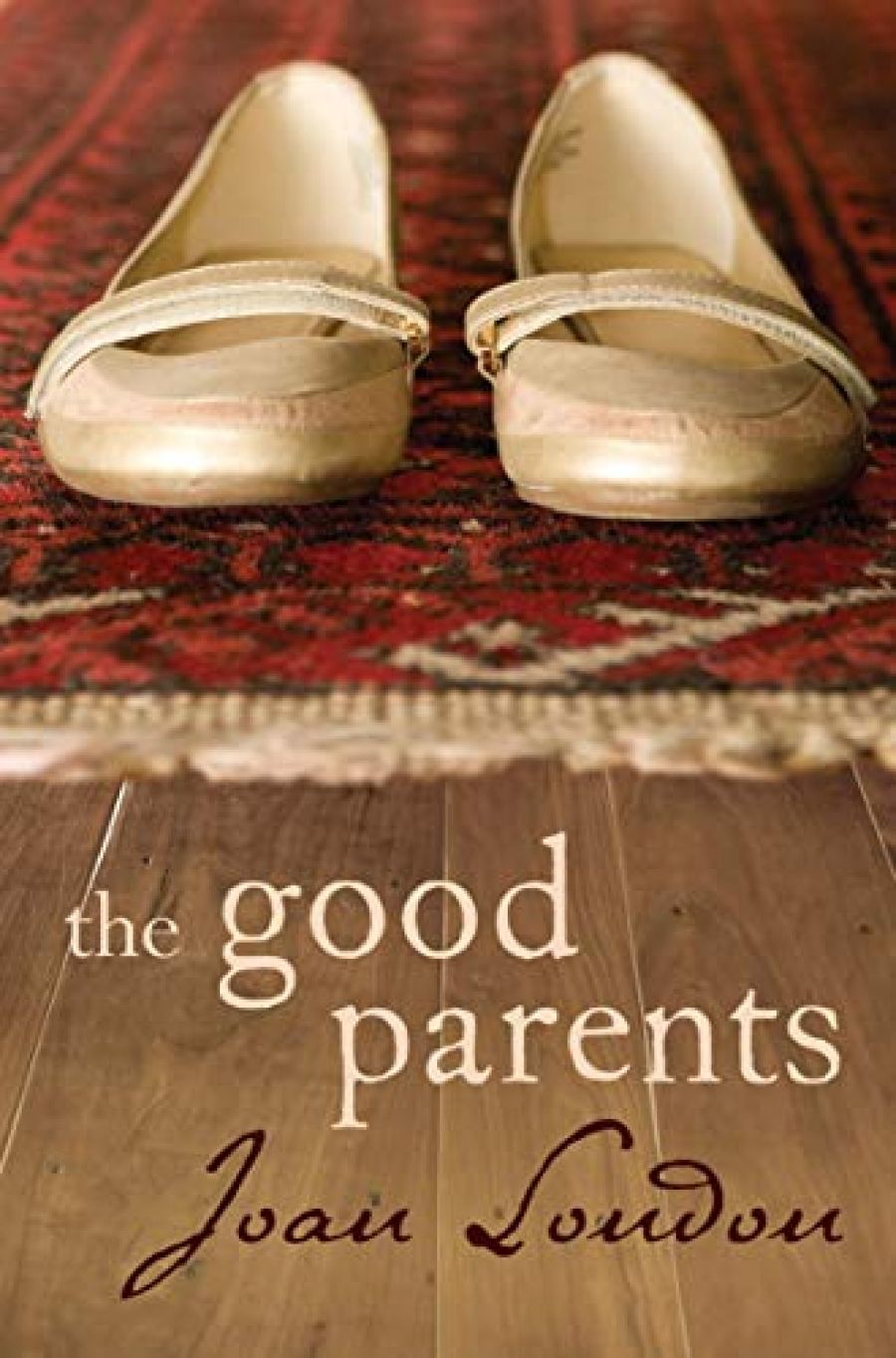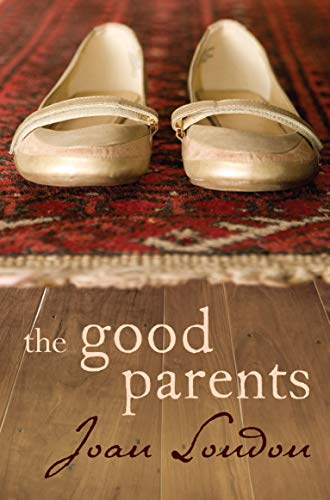
- Free Article: No
- Custom Article Title: Without a shell
- Review Article: Yes
- Article Title: Without a shell
- Online Only: No
- Custom Highlight Text:
The Good Parents, Joan London’s second novel, begins with the seduction and disappearance of Maya de Jong, an eighteen-year-old who has recently moved to Melbourne from a small Western Australian town. Maya’s worried parents, Jacob and Toni, travel to Melbourne, set themselves up in her Richmond share house, and begin to search for clues to explain her absence.
- Book 1 Title: The Good Parents
- Book 1 Biblio: Vintage, $32.95, 368 pp
- Book 1 Cover Small (400 x 600):

- Book 1 Cover (800 x 1200):

The question as to why an intelligent young woman, who has been raised in a stable and loving home by open-minded parents, feels the need to act in such a stupid way is at the heart of the novel. Teenage rebellion is part of the answer, but only part. London seeks something beyond the clichés of youthful angst, naïveté and solipsism. She considers what it means to be young, regardless of upbringing. To this end, The Good Parents makes effective use of a number of dramatic echoes between generations. We eventually learn that Maya’s actions unknowingly mirror her mother’s: as a teenager, Toni had eloped with a darkly charismatic gangster named Cy Fisher. Toni was so enthralled with her sophisticated new life that she estranged herself from all that her parents and her respectable suburban upbringing represented. It took her a while to realise that she was trapped. Maya’s grandmother, Beryl, also succumbed to a moment of adolescent smugness in marrying Toni’s father, a beautiful but distant Errol Flynn lookalike, but her exuberance at snaring such a catch soon faded as she settled into a long, loveless marriage marked by frequent, mutely received disappointments. Beryl, Toni and Maya certainly are naïve to jump into unsatisfying relationships with controlling men, but London points this out gently. She wants to step inside these wrong-headed decisions made with the bulletproof confidence of youth, and the novel’s willingness to do this is one of its most compelling features.
The good parents of the title are everywhere and nowhere as London deconstructs what it is both to be a child and to have a child. The best sections of the novel are an astute reading of adolescence, sweeping the reader up in the characters’ intense urge to flee all that they know, all that has defined them so far. London is good at generating empathy for youth. Her evocation of the exhilarating promise of the counterculture to the baby-boomer generation is stirring. Jaded though many readers may be with accounts of the fabulous 1960s, London succeeds in writing about the idealism and promise of this era without cliché or sentimentality.
Indeed, you get the impression that the author has faith in the way in which young people take culture and make it their own. The constant flux of ideas and influences in adolescence is what makes us who we are, as much as any parental influence. And, London implies, it is never simply a product of the hermetically sealed idea of ‘youth culture’ that the media consistently trots out. Culture is there for the taking, for the young and the old. Jacob’s absorption in War and Peace, when he is supposed to be studying for his leaving exams, is as subversive an act as any he later undertakes as an enlightenment-seeking hippy drop-out. Literature liberates him; it teaches him how to live. Later in the novel, his son Magnus uses music in a similar way, lovingly compiling a constant stream of eclectic mixed tapes for friends and family containing everything from flamenco guitar to Brian Eno and Mos Def.
Where The Good Parents falls down a little is hard to pinpoint. It has the strong sense of structure and characterisation, which was evident in London’s excellent first novel, Gilgamesh (2001), but it does not have quite the same atmospheric strength. Gilgamesh was haunting because it was one of those novels which draws the reader inexorably into its own world; The Good Parents has less of this compelling energy. There is, at times, a listlessness to the narrative which feels like dead air. London’s trademark restraint relies upon her ability to evoke what is underneath rather than what is upfront. Cultivating this almost inaudible hum of deeper meaning behind the action is a difficult enough task for any writer, and in The Good Parents it is only intermittently sustained. To say that The Good Parents is not as rewarding as Gilgamesh is, however, a mild criticism. If the novel were London’s first effort it would be very impressive, but knowing what she is truly capable of, I could not help but feel a certain lack.


Comments powered by CComment